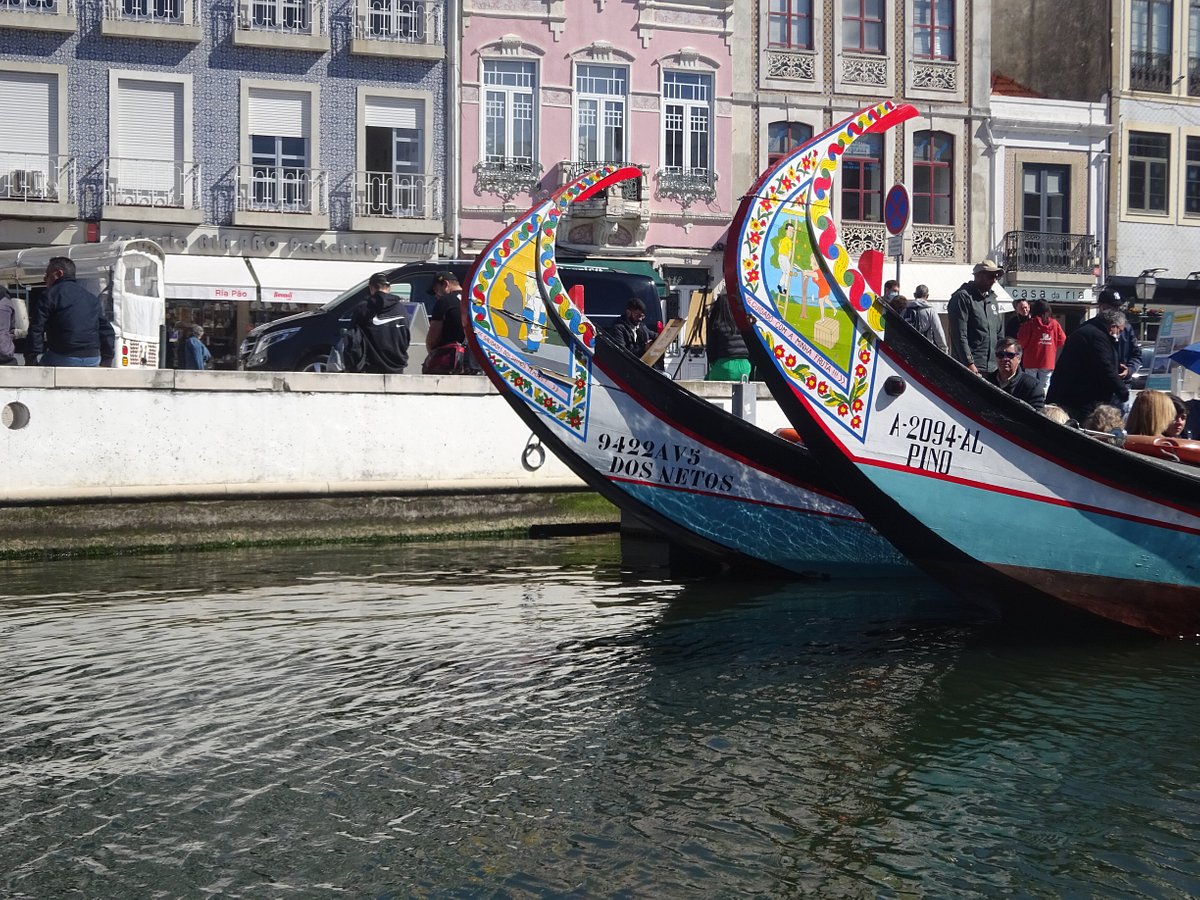The city of Aveiro on the west coast of Portugal, which is called "little Venice", is much less known to travelers than the tourist pearl of Italy.
Meanwhile, the comparison of Aveiro with Venice is quite justified: river channels with bridges thrown over them, streets stretching along the banks with colorful Art Nouveau houses and "moliseiro", the Portuguese equivalent of Venetian gondolas. At the same time, the peculiarity of Aveiro is that this town with a population of about 81 thousand people is for tourists a much more attractive option for a holiday than Venice itself.
BETWEEN LISBON AND PORTO
The first mention of Aveiro dates back to 959. For centuries, the territory now occupied by the city was the property of Portuguese infantes and was of strategic importance for the communication of the North of Portugal with the capital of the country – Lisbon.
"Portuguese Venice" is today the second most important city after Coimbra in central Portugal, located 220 kilometers from Lisbon and 68 kilometers from Porto. Three canals running through Aveira divide it into several tourist areas, the main of which are the old fishing quarter and historical buildings in the southern part of the city. One of the business cards of Aveiro is the old building of the railway station, decorated with traditional painted clay tiles of Azulejo.
In the historical center of the city, which can be bypassed in just 20 minutes (about the same time it will take to walk along the canals), the attention of tourists is attracted by narrow streets with houses decorated with azulejus, souvenir shops and shops. As in any other ancient city, the main architectural attractions of Aveiro are religious buildings. There are several Catholic cathedrals in the city. The tour of the historical part of Aveiro will take a total of 1.5 – 2 hours.
Although the gondolas and canals are very similar in appearance to the Venetian ones, prices in hotels, restaurants and bars of Aveiro are much more affordable for the average tourist. So, accommodation in a double room in the four-star Costa do sal hotel on the Atlantic Ocean will cost 31.50 euros per person, and food in an inexpensive restaurant will cost an average of 8 euros. A mug of beer - 2 euros.
The proximity to the Atlantic guarantees tourists first-class seafood dishes, including "caldeirada", the famous Portuguese fish stew with potatoes, onions and other ingredients.
A serene place for nature lovers is offered by the famous Ria de Aveiro, a vast lagoon framed by golden sand dunes. Vacationers will also be able to take an eight-kilometer walk along dirt paths and wooden stairs in the nature reserve along the Paiva River, taste various kinds of sweets in the confectionery shop Oficina do Doce, as well as enjoy the picturesqueness of the famous beaches of Barra and San Jacinto.
PENALTY FOR MUSIC
In the summer season, the beaches of Portugal are often crowded. And each tourist, of course, having his own vision of rest, tries to organize it in his own way. However, you should be careful: listening to or playing music can cost you dearly in Portugal.
Before the start of the current tourist season The National Maritime Administration has announced a ban on the use of portable speakers playing music at high volume on the country's beaches. In accordance with the decree, the use of sound equipment and activities that can create noise and cause discomfort are not allowed. Despite the fact that the volume level, considered a violation of public order, is not specified, vacationers and local residents have the right to contact the local maritime police with complaints about noise. Therefore, vacationers on the beaches of Portuguese resorts are warned in advance that in case of loud listening to music, they face high fines. They range from 200 to 4 thousand euros for individuals and from 2 thousand to 36 thousand for organizations. At the same time, the musical device itself, which causes discomfort to vacationers, can be confiscated. In addition to the ban on the use of portable speakers, wild camping, ball games outside designated areas and campfires are also prohibited on the beaches of Portugal.
"DESTRUCTIVE TOURISTS"
Recently, so-called destructive tourists have been targeted all over Europe. In many countries, rules and restrictions are being introduced in order to make popular tourist destinations more comfortable for local residents.
The authorities of several Spanish cities have announced the introduction of strict, sometimes excessive rules at beach resorts. For example, in Benidorm on the east coast of Spain, vacationers are not allowed to build large sand castles. In Dubrovnik, Croatia, in order to reduce noise, tourists were forbidden to drive suitcases on wheels through the streets of the Old City. For their part, the Greek authorities, in order to solve the problem of excessive tourism, have introduced new requirements when visiting the Acropolis, including a temporary entry system, electronic tickets and separate entry points for tourist groups.
And in Rome, in order to improve the service of tourists, they began to charge a fee for visiting the Pantheon. To see the most visited cultural object in Italy, tourists now have to pay 5 euros.
Many European countries, including Portugal, to combat noisy and disturbing public order tourists-tenants of housing tighten the rules of daily rent.Photo of Tripadvisor


